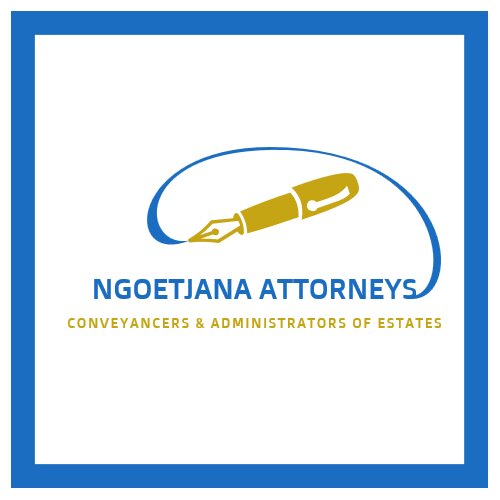Best Nursing Home Abuse Lawyers in Centurion
Share your needs with us, get contacted by law firms.
Free. Takes 2 min.
List of the best lawyers in Centurion, South Africa
About Nursing Home Abuse Law in Centurion, South Africa
Nursing home abuse is a serious issue in Centurion, South Africa, involving harm or neglect inflicted upon elderly individuals residing in care facilities. Abuse can take various forms, including physical, emotional, financial or sexual harm, and neglect of basic needs. South African law recognises the rights of the elderly to be treated with dignity and respect, receiving appropriate care and protection against abuse. Local regulations and national statutes exist to ensure that residents of nursing homes are safeguarded, and legal remedies are available for victims and their families.
Why You May Need a Lawyer
Obtaining legal advice or representation is often crucial when dealing with suspected nursing home abuse situations. Common scenarios where a specialised lawyer can assist include:
- When there are visible injuries or unexplained health issues affecting a nursing home resident.
- If a loved one has experienced a sudden change in behaviour, mood or emotional well-being while in care.
- When there are signs of financial exploitation or sudden changes in a resident’s finances.
- If complaints to nursing home management or staff go unresolved or ignored.
- When there is evidence or suspicion of neglect, such as poor hygiene, malnutrition, or dehydration.
- To help interpret medical records, ensure complaints are formally submitted, and gather supporting documentation.
- When pursuing compensation for harm suffered or seeking accountability from nursing home staff or management.
Navigating the legal system and local procedures can be complex, so a lawyer's guidance is invaluable in ensuring your rights or those of your loved one are protected.
Local Laws Overview
In South Africa, including Centurion, nursing home abuse is governed by several laws and regulations concerned with the rights and protection of the elderly. Key aspects include:
- Older Persons Act 13 of 2006: This central piece of legislation defines the rights of older people, prescribes standards for care facilities, and establishes complaint mechanisms for abuse or neglect.
- Regulations Relating to the Care and Protection of Older Persons: These provide detailed requirements for care facilities regarding staff conduct, minimum care standards, and incident reporting.
- Criminal Law: Physical, emotional, or financial abuse of any person, including elders in care, may be prosecuted under criminal statutes.
- Reporting Obligations: Staff and management of care facilities are legally required to report suspected abuse. Family members or the public can also alert authorities or relevant bodies.
- Provincial and Municipal Regulations: Local bodies, including those in Gauteng Province and the City of Tshwane, may set additional standards for care and facility registration.
These laws aim to protect vulnerable individuals from harm, set out remedies for violations, and ensure proper oversight of care facilities in Centurion and across South Africa.
Frequently Asked Questions
What are the most common types of nursing home abuse in Centurion?
The most common forms include physical abuse, emotional or psychological abuse, neglect, financial exploitation and sexual abuse.
Who can report nursing home abuse in Centurion?
Anyone can report suspected abuse, including family members, visitors, healthcare providers, or the residents themselves.
What signs should I look out for if I suspect abuse?
Warning signs include unexplained injuries, frequent falls, sudden changes in mood, weight loss, poor hygiene, unusual financial transactions and withdrawal from social activities.
What legal rights do nursing home residents have?
Residents have the right to dignified and respectful treatment, to be protected from abuse or neglect, to access medical care, and to complain about mistreatment without fear of retaliation.
What should I do if I suspect nursing home abuse has occurred?
Gather as much evidence as possible, document suspected incidents, and report your concerns to facility management, local authorities, or social services promptly.
Are there specific laws in Centurion or South Africa dealing with elder abuse?
Yes, laws such as the Older Persons Act and related regulations directly address elder care and provide measures for reporting and combating abuse.
How can a lawyer help in cases of nursing home abuse?
A lawyer can investigate abuse claims, obtain evidence, provide advice on the best course of action, assist in submitting formal complaints, represent you in negotiations or court, and pursue compensation or other remedies.
What evidence is important for a nursing home abuse case?
Important evidence can include medical records, photographs of injuries, witness statements, financial documents, and correspondence with the care facility.
Can criminal charges be filed against abusers?
Yes, where there is evidence of criminal conduct, such as assault or theft, charges can be brought against individuals responsible for the abuse or neglect.
What should I do if management ignores my complaint?
Escalate your concerns to higher authorities, such as the Department of Social Development, local law enforcement, or consult a lawyer for further legal action.
Additional Resources
If you or a loved one needs support or information about nursing home abuse in Centurion, the following resources can be helpful:
- Department of Social Development: This government body oversees the welfare of older persons and manages complaints against care facilities.
- South African Council for the Aged (SACA): An advocacy group providing assistance and resources to elderly citizens.
- The South African Police Service (SAPS): For reporting criminal conduct related to elder abuse.
- Gauteng Department of Health: Handles complaints related to healthcare standards in nursing homes.
- Legal Aid South Africa: Offers legal information and, for qualifying individuals, access to affordable legal representation.
Next Steps
If you suspect nursing home abuse or neglect, your priority should be the safety and well-being of the affected individual. Take the following steps:
- Document your concerns with as much detail as possible, including dates, times, and descriptions of incidents.
- Report the suspected abuse to nursing home management or staff in writing.
- If the response is inadequate, escalate the matter to local authorities, such as the Department of Social Development or SAPS.
- Consult a lawyer who specialises in elder care or nursing home abuse to understand your legal options and ensure the rights of your loved one are protected.
- Follow up on complaints to ensure effective action is taken, and keep a record of all correspondence and evidence.
Professional legal assistance can guide you through the process, help secure justice for your loved one, and hold negligent parties accountable.
Lawzana helps you find the best lawyers and law firms in Centurion through a curated and pre-screened list of qualified legal professionals. Our platform offers rankings and detailed profiles of attorneys and law firms, allowing you to compare based on practice areas, including Nursing Home Abuse, experience, and client feedback.
Each profile includes a description of the firm's areas of practice, client reviews, team members and partners, year of establishment, spoken languages, office locations, contact information, social media presence, and any published articles or resources. Most firms on our platform speak English and are experienced in both local and international legal matters.
Get a quote from top-rated law firms in Centurion, South Africa — quickly, securely, and without unnecessary hassle.
Disclaimer:
The information provided on this page is for general informational purposes only and does not constitute legal advice. While we strive to ensure the accuracy and relevance of the content, legal information may change over time, and interpretations of the law can vary. You should always consult with a qualified legal professional for advice specific to your situation.
We disclaim all liability for actions taken or not taken based on the content of this page. If you believe any information is incorrect or outdated, please contact us, and we will review and update it where appropriate.










